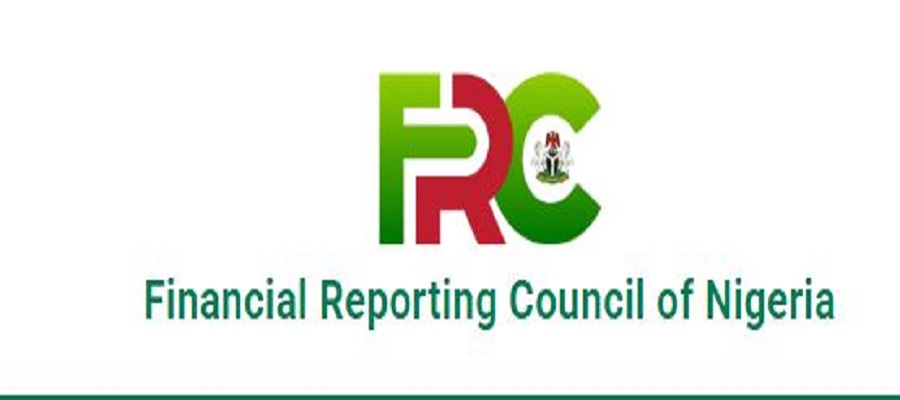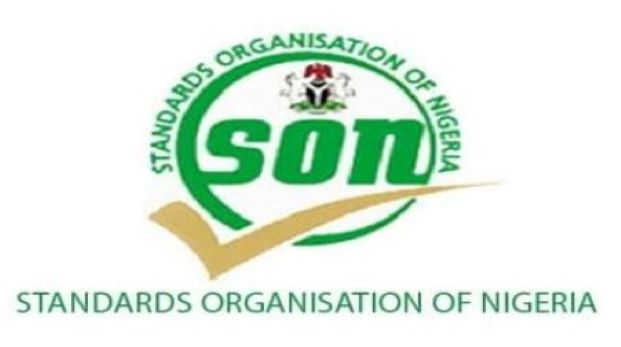General News
How Nigeria’s Hospitality Industry can Leverage the Entertainment Sector

By Adeniyi Ogunfowoke,PR Associate Jumia Travel
Hospitality has so many branches which include but not limited to music and film. To present a total hospitality package to tourists and visitors, these two must be aligned.
In Nigeria, you can arguably posit that there is yet to be a synergy between the hospitality and entertainment industry. This is a minus for both industries because the country is losing out from a major revenue loop. Although both sectors can exist independently, it will do the economy a whole lot of good if they synergise.
Let’s give more credence to this. According to Nigeria’s Hospitality Report, Travel and Tourism was directly responsible for 1.9% (N2.3 billion in actual numbers) of the country’s total GDP in 2017.
Meanwhile, a report in the Vanguard Newspaper reveals that the entertainment and creative sector contributed 2.3 per cent which was approximately N239 billion to the nation’s Gross Domestic Product, GDP in 2016. Definitely, the numbers would have increased in 2017.
You can only imagine how much the Nigerian government will earn if both industries are synergised. In fact, more than the above-referenced figures can be earned if the government and stakeholders explore the endless gains of the hospitality and entertainment industry.
Nigeria’s Entertainment Industry
The entertainment industry has grown by leaps and bounds. Unlike in the past when Nigerians have the knack for foreign films and music, the opposite is the case now. They have embraced Nigerian films and music. The likes of Rita Dominic, Genevieve Nnaji, Pete Edochie, Funke Akindele, Wizkid, Olamide, and Davido et al are known all over the world including African countries. They are also celebrated in the country. Hence, they are ‘tools’ that can be used to push the Nigerian hospitality industry.
Interestingly, the government has recognised that the creative industry has a huge goldmine and has supported the industry with several grants.
In 2013, the government then established N200 billion (or about $1.2 billion) intervention fund for the entertainment industry. Last year, the federal government again supported the Nigerian film industry with N420m grant.
The government support has largely boosted the entertainment industry. You can observe this in the quality of videos and songs emerging from the country.
The Hospitality industry
There has really been no reported grant or fund for the hospitality industry unlike what is happening in entertainment. This is probably why the industry is laid back.
When you talk about hospitality in Nigeria, we mostly look at it from the perspective of hotels and tourist attractions-which need government attention. It is beyond this. There is food, flight, festivals, culture, film, music and much more.
The industry has infinite opportunities that only being explored by a few stakeholders and government interest is limited.
Again, quoting the Nigeria Hospitality report, the number of direct jobs created by the sector peaked at 1.2 million compared to 651,000 in 2016 (1.6%), that’s 1.8% of total employment in the country. This is estimated to rise by 4.7% by end of 2018 to approximately 1.3 million jobs (1.8% of total employment). If the government could invest in the hospitality industry, these figures will definitely increase.
How the hospitality industry can leverage the entertainment sector
Since entertainment is getting more attention from the government, it can be said that the hospitality industry will have to leverage on entertainment for the purpose of business and earn more revenue.
This said it is not rocket science to synergise both sectors to earn more revenue.
Artists and producers must recognise that there are beautiful, pleasant and awesome Nigerian destinations where they can shoot their videos. For example, we have the Obudu Cattle Ranch, the Kajuru Castle, Olumirin Waterfalls and a host of others. They do not need to visit South Africa or Dubai to shoot their movies. The more these destinations get celebrity endorsements, the more Nigerians will be interested in checking out these destinations and of course, these destinations can earn more revenue.
Furthermore, hospitality stakeholders should partner with artists so that they can endorse their hospitality spots. They do not need to pay the artists cash but they can compensate them in kind. For example, whenever, they have shows or performances, they can provide a certain number of rooms to the artistes and his backroom staff. This will translate to more bookings for the hotel.
Finally, the Nigerian tourist spots need dire attention. So, these artists can organise shows and performances at these spots. The more performances at these tourists attractions, the more they feature prominently in the media. Since the media sets the agenda, the condition of these destinations will be known to the government. They can now, in turn, develop these destinations.
Conclusion
Entertainment and Hospitality can contribute more than it is currently doing to Nigeria’s Gross Domestic Product. That is if it is synergised. The government have a key role to play. They have to also give the grant to the hospitality sector. However, because hospitality is yet to have the influence or impact that entertainment has, the former can leverage on the later to more revenue.
General News
FG Halts Controversial FRC Dues amid Industry Outcry

Federal government has temporarily suspended the controversial annual dues imposed on public interest enterprises by the Financial Reporting Council (FRC) after fierce opposition from businesses.

Jumoke Oduwole, minister, Industry, Trade, and Investment, announced the decision during a Ministerial Consultative Meeting in Abuja on Wednesday.
The move follows mounting pressure from private sector groups, including the Nigeria Employers’ Consultative Association (NECA) and the Manufacturers Association of Nigeria (MAN), who slammed the Financial Reporting Council (Amendment) Act 2023 for burdening companies with excessive fees.
The Act mandates cumulative annual charges for non-listed entities and imposes a harsh 10% monthly penalty on unpaid dues, compounding until full payment, a provision that sparked widespread backlash.
At the meeting, major industry players like NECA, MAN, the Nigerian Association of Chambers of Commerce (NACCIMA), oil producers, and telecom operators warned that the fees would cripple businesses already struggling in a tough economy.
Oduwole clarified the suspension, stating, “The government has decided to direct the Financial Reporting Council to pause in the implementation of the new annual dues. You know that I am a lawyer, and a suspension request by the organised private sector would be in contravention of legislation duly passed by the National Assembly. A pause is an administrative process simply to review, in line with what we discussed today.”
She assured stakeholders that the halt would last no longer than 60 days, with a technical working group—including FRC officials and private sector representatives—set up to reassess the policy.
“We are a listening administration. The private sector has requested a range from three months to an indefinite suspension. We are not going to do that. So, at the most, 60 days is in my estimate. We are going to set up a technical working group comprised of the FRC and the organised private sector who have formally written in, and this will be reviewed,” Oduwole emphasized.
General News
SON Pledges to Standardize Made-in-Aba Products

The Standards Organisation of Nigeria (SON) says it is intensifying efforts to standardise locally manufactured products, including Made-in-Aba brands, in order to enhance both local and international acceptance.

Aharanwa Chuks, Director of Region (South East), SON, communicated this in an interview with the News Agency of Nigeria (NAN) on Wednesday in Abuja.
Chuks said through the Mandatory Conformity Assessment Programme (MANCAP), SON ensured that all Nigerian-made products conformed to the relevant Nigerian Industrial Standards (NIS).
According to him, MANCAP involves direct engagement with manufacturers to certify that their products meet established quality benchmarks.
“This process includes inspecting production facilities, sampling products and testing them against NIS requirements.
“Successful compliance results in the issuance of the MANCAP certification, signifying adherence to quality standards.
“In Aba, SON has been proactive in educating manufacturers about standardization.’’
The director said SON also conducted stakeholder interactions; gathering manufacturers from various sectors to provide guidance on producing goods that met both local and international standards.
“For instance, leather manufacturers in Aba have been sensitized on standardization practices to enhance the global competitiveness of their products.
“Manufacturers are encouraged to collaborate with SON to obtain MANCAP certification, ensuring their products are not only marketable within Nigeria but also competitive internationally.
“This initiative aims to boost consumer confidence and promote the acceptance of Made-in-Aba products globally,” Chuks said.
General News
EFCC Arrests 133 @ Ponzi Scheme Training Academy

Operatives of the Economic and Financial Crimes Commission (EFCC), has busted a Ponzi Scheme Academy and arrested 133 suspects in Abuja.

They were arrested at the Compensation Layout in Gwagwalada area of the Federal Capital Territory, FCT, Abuja, following actionable intelligence on the existence of the Academy.
The Academy, named Q University (a.k.a Q-Net) is in the business of recruiting gullible young Nigerians who are trained to recruit more gullible citizens into the scheme with the promise of getting unrealistic profit returns.
The suspects are enrolled into a training codenamed: “Special Training for New Generation Billionaire” and brainwashed to believe that they would graduate into the league of billionaires.
They got into the training by obtaining a form the promoters called “Independent Representative Application Form” with promotional slogans such as: “I’m a Champion” “I’m Unstoppable”, “I’m Infinity”, among others.
The EFCC carried out the operation in collaboration with officers and men of 176 Guards Battalion, Nigerian Army.
Items recovered from the suspects include phones, computers and other electronic gadgets.
They will be charged to court as soon as investigations are concluded.

 E-Business3 days ago
E-Business3 days agoFG Plans to Link Social Register to NIN for Humanitarian Crisis

 Broadcasting3 days ago
Broadcasting3 days agoWe’re Confident in the Super Eagles – Karl Toriola

 Telecom3 days ago
Telecom3 days agoKeystone Bank Seeks to Join Suit in Tussle over 9Mobile Shares Ownership

 E-Financial3 days ago
E-Financial3 days agoFG to Harmonise Fiscal Data Across MDAs

 E-Business3 days ago
E-Business3 days agoFive WhatsApp Business Features Every Small Business Should Be Using

 News3 days ago
News3 days agoSenate Probes Federal Character Violations by NDIC, Others

 E-Financial3 days ago
E-Financial3 days agoZumax Files N4.1Bn Suit against CBN over ‘Fraudulent’ Receivership

 News2 days ago
News2 days agoCourt Throws Out Falana’s Fraud Case against Ekeh, Zinox Boss and Others



























